
Medical research and development take center stage at symposium
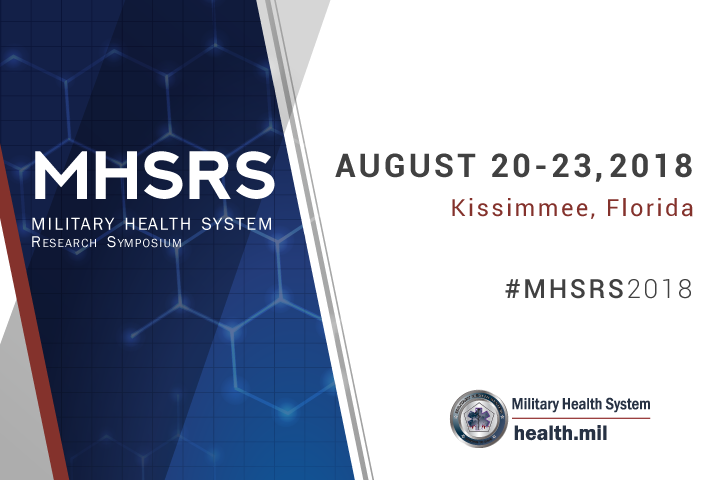
The theme of this year’s meeting is “Medical Innovation for Warfighter Readiness.”
FALLS CHURCH, Va. — Sharing scientific knowledge gained from military-unique medical research and development is the focus of the annual Military Health System Research Symposium, Aug. 20-23 at the Gaylord Palms Resort and Convention Center in Kissimmee, Florida. The theme of this year’s meeting is “Medical Innovation for Warfighter Readiness: The Future Starts Now.”
“MHSRS is the premier showcase for our research community,” said Dr. Terry Rauch, acting deputy assistant secretary of Defense for Health Readiness Policy and Oversight at the Defense Health Agency.
“Attendees will be able to meet with colleagues from around the world in industry, academia, and across governments while learning about all of the new and exciting advancements in military medical research," said Rauch.
Navy Vice Adm. Raquel Bono, DHA director, and Thomas McCaffery, acting assistant secretary of Defense for Health Affairs, are attending the symposium. They’re among approximately 3,000 others including military providers with deployment experience, research and academic scientists, and industry and international partners.
Biomedical research and development is a vital part of national security strategy, said Navy Rear Adm. Mary Riggs, DHA’s director of research and development. She said R&D leads to advances that ensure service members are better protected, better prepared, and better cared for as they execute their mission.
Topics covered during the symposium include combat casualty care, military operational medicine including psychological health and resilience, clinical and rehabilitative medicine, medical simulation and health information sciences, military infectious diseases, and radiation health. The Aug. 20 session includes the presentation of the 2018 MHSRS awards for Distinguished Service, individual research accomplishment, and outstanding research team.
Sean Biggerstaff, deputy director of DHA’s Research and Development directorate, said innovative breakthroughs are needed for maximum readiness in the future.
“With appropriate processes in place, our organization can achieve these goals and provide interoperable products to the future force,” Biggerstaff said.
“Today’s development of efficient and effective military biomedical R&D processes will help speed the delivery of products and solutions in the future,” he said.
MHSRS is the premier military or civilian meeting that focuses specifically on the unique medical needs of warfighters, providing a collaborative setting for the exchange of information. Additional information about MHSRS is available here.
Researchers will present findings at Military Health System Research Symposium
Article
8/14/2018
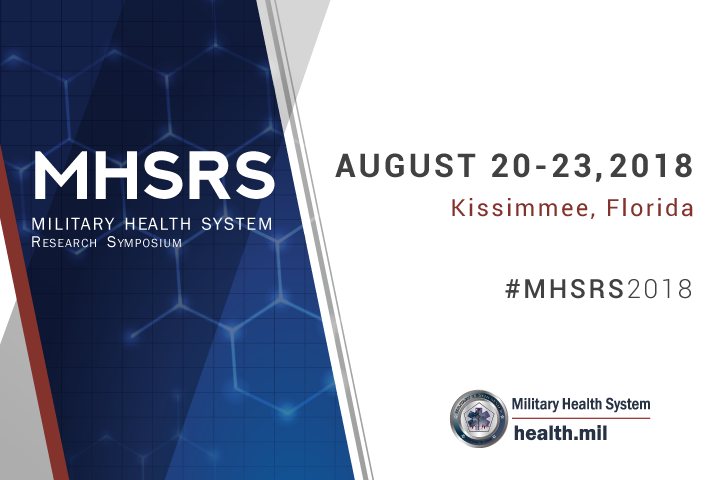
As the DoD’s premier scientific meeting, MHSRS helps to facilitate the exchange of information between almost 3,000 attendees
From an award ceremony to panel talks, senior leaders will have presence at HIMSS
Article
3/8/2018
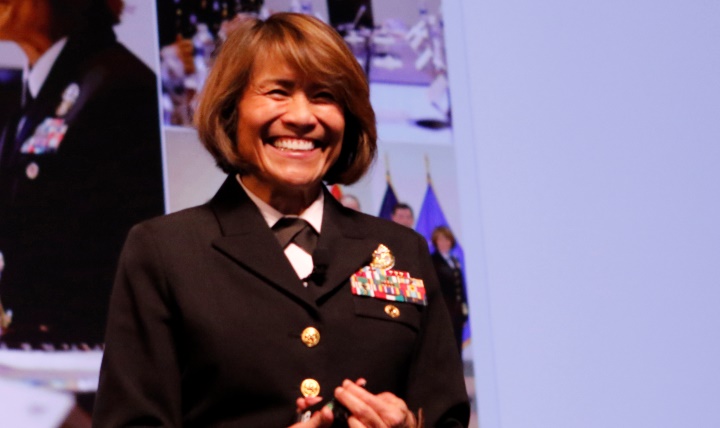
Federal health, IT experts come together for discussion on hot topics
2017 Year in Review: A look at inspiring individuals who help shape the MHS
Article
12/20/2017
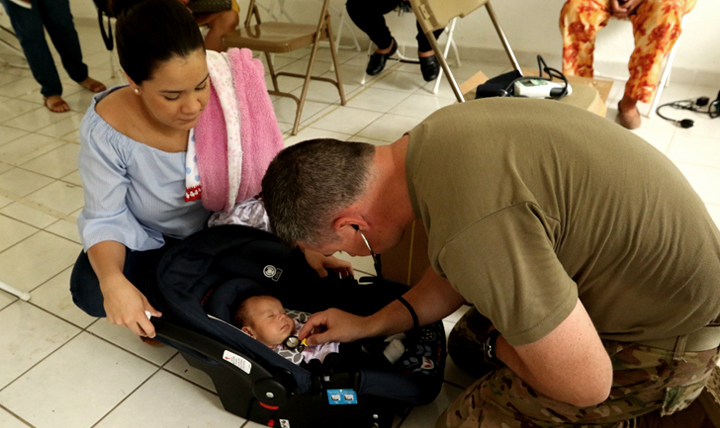
MHS highlights the contributions of veterans, advocates, providers
Centers of Excellence align under Defense Health Agency
Article
11/1/2017
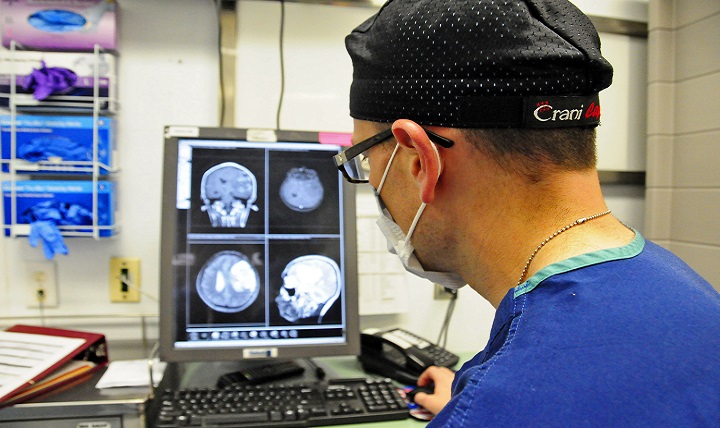
The Defense Centers of Excellence for Psychological Health and Traumatic Brain Injury (DCoE) began realignment under the Defense Health Agency Oct. 1 as part of the ongoing Military Health System transformation
DHA symposium brings together minds to get the most out of research dollars
Article
10/17/2017
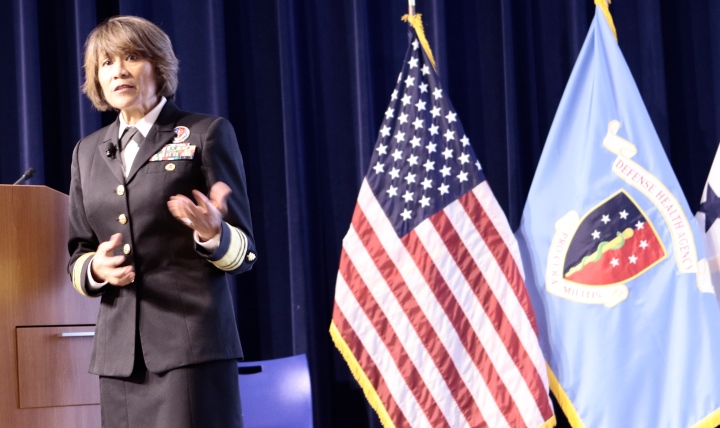
A recent symposium sponsored by the Defense Health Agency brought together military, federal government, academia, and private industry to talk about how best to get the most out of tax dollars while helping patients
Army, civilian experts speak on bridging from research to advanced development and fielding
Article
9/8/2017
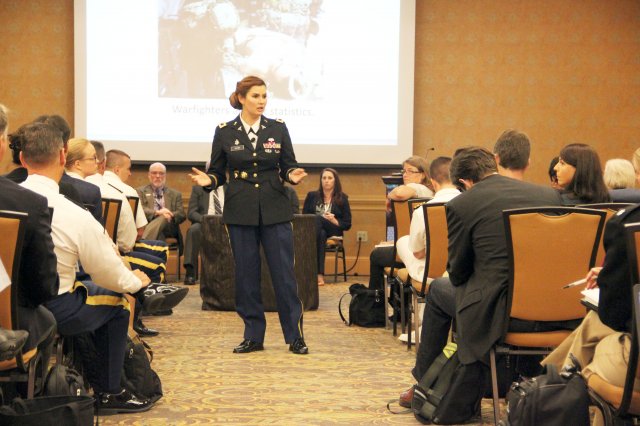
Experts from the U.S. Army Medical Research and Materiel Command joined counterparts in military, government, industry and academia in a panel session at the Military Health System Research Symposium
Research symposium provided forum for collaboration
Article
9/1/2017
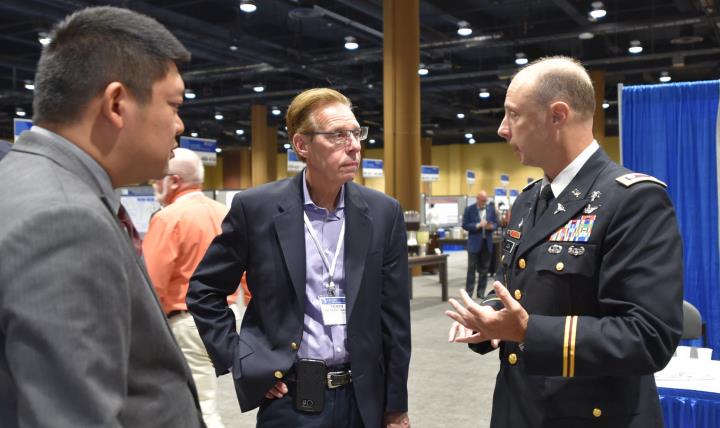
The Military Health System Research Symposium wrapped up in Kissimmee, Florida, after a nearly week-long chance for providers and scientists to collaborate on military medicine.
Studies seek to improve everyday life after injury, amputation
Article
8/31/2017
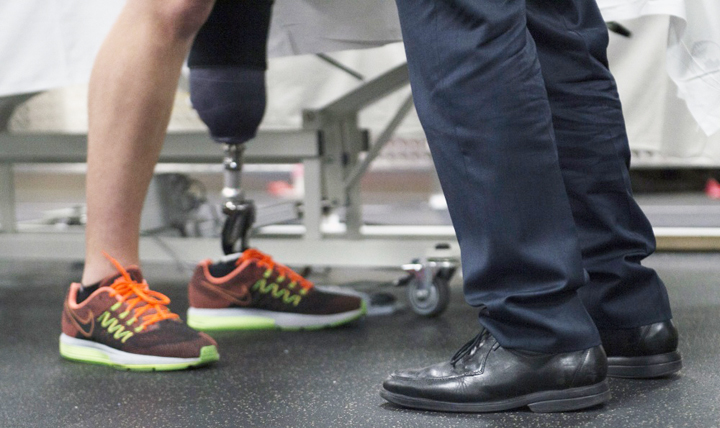
Aspects from daily life, whether its tobacco use or hand functions, can be challenged in ways unknown before a significant injury; Experts share their research on musculoskeletal injuries during MHSRS in Kissimmee, Florida
NHRC shares research that supports warfighter readiness at MHSRS
Article
8/31/2017
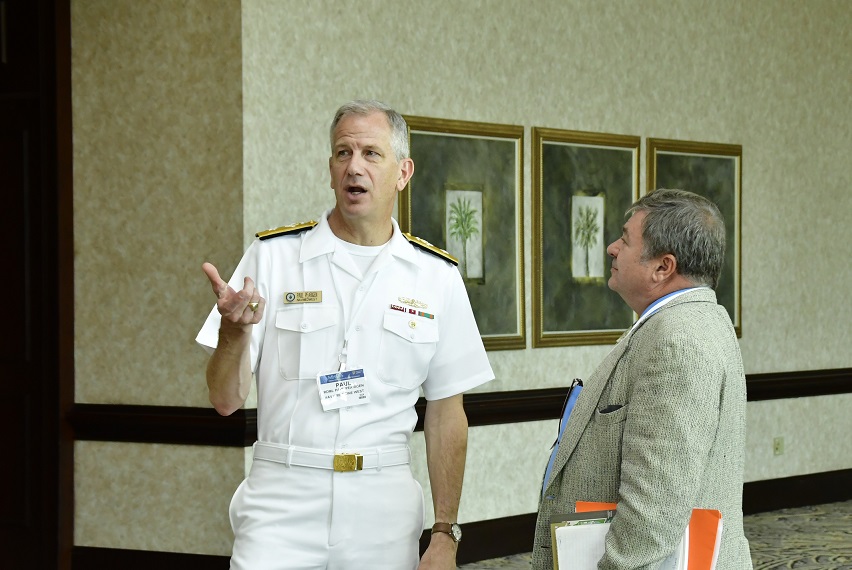
Scientists from the Naval Health Research Center attended the 2017 Military Health System Research Symposium, Aug. 27-30, to share their latest research that supports the readiness and health of U.S. warfighters.
NHRC research protects U.S. military recruits from respiratory illness
Article
8/31/2017
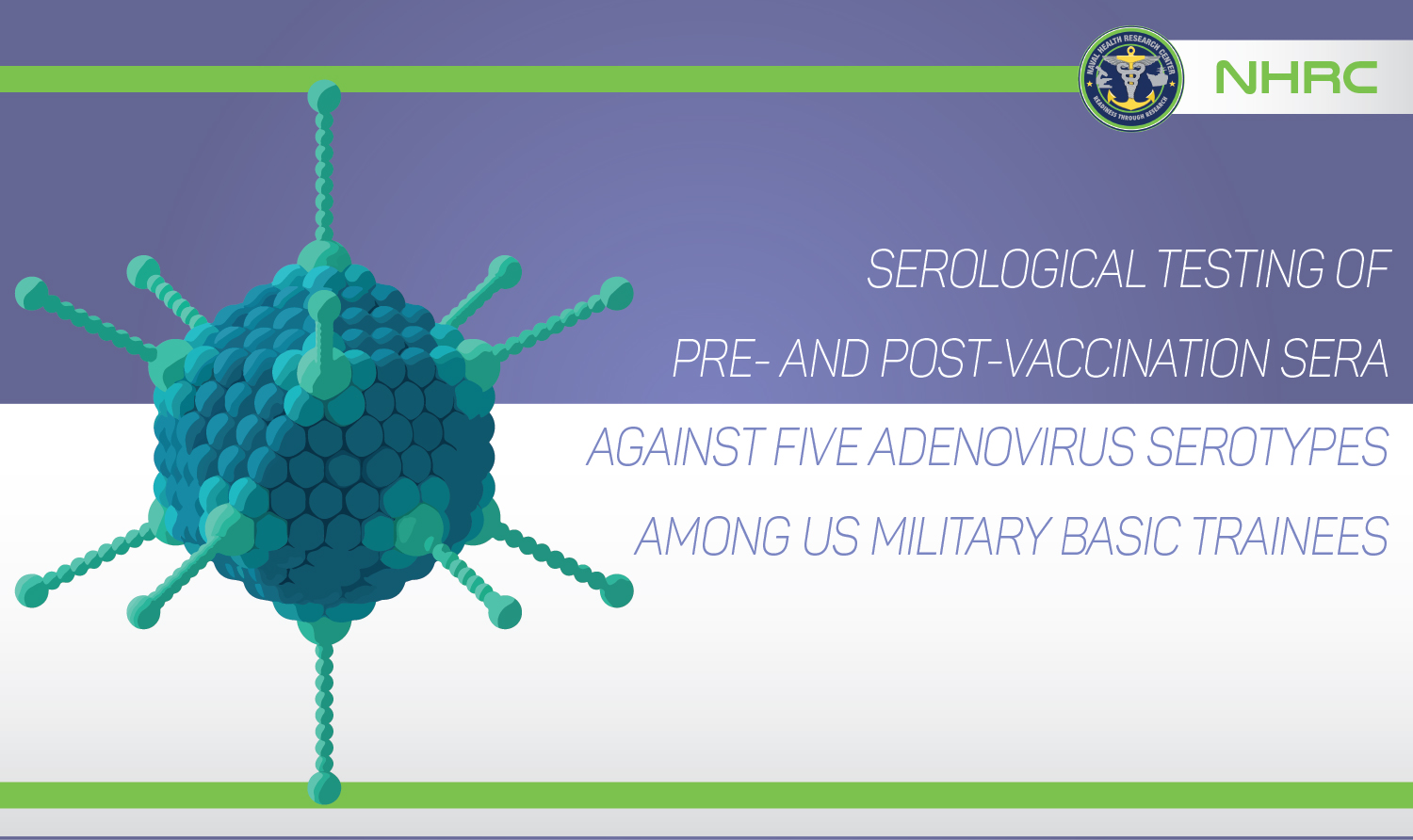
Researchers from the Naval Health Research Center discussed ongoing surveillance for adenovirus, a contagious pathogen that causes respiratory illness, among U.S. military recruits during basic training at the Military Health System Research Symposium, Aug. 27.
The development of a nanofibrous scaffold for the recruitment of fibroblast during wound healing
Article
8/30/2017
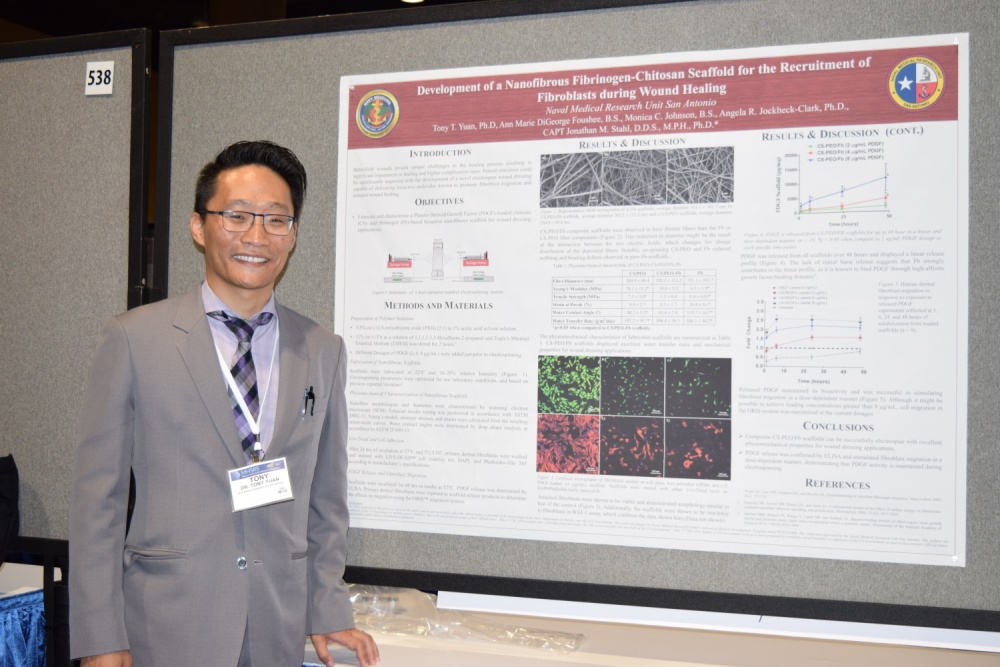
A researcher from the Naval Medical Research Unit – San Antonio shared findings on the fabrication and characterization of a novel nanofibrous scaffold that could potentially improve wound healing by enhancing wound closure, promoting hemostasis, and acting as a temporary physical barrier against debris and microbial pathogens during the Military ...
Experts talk knowledge translation benefits for Military Health System
Article
8/30/2017
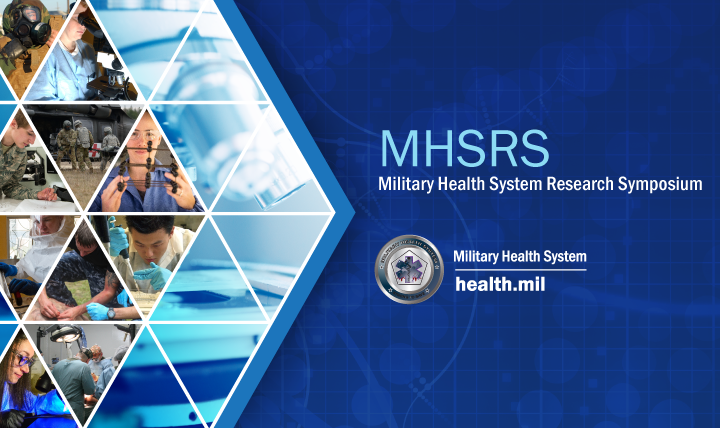
Dr. Richard Stoltz, Defense Centers of Excellence for Psychological Health and Traumatic Brain Injury (DCoE) acting director, introduced the knowledge translation process and how using a systematic approach and best practices can impact military psychological health challenges.
Knowledge translation: What is it, how will it help?
Article
8/29/2017

Knowledge translation is a process to take medical research findings and put them into evidenced-based treatments in a more timely and useful way
Regrowing limbs could be the future for military medicine
Article
8/29/2017

Scientists at the Military Health System Research Symposium are talking about the future of regenerative medicine, a future that could include warfighters acting like salamanders and regrowing missing arms and legs!
NHRC researchers use data to understand long-term health outcomes for combat-injured amputees
Article
8/29/2017
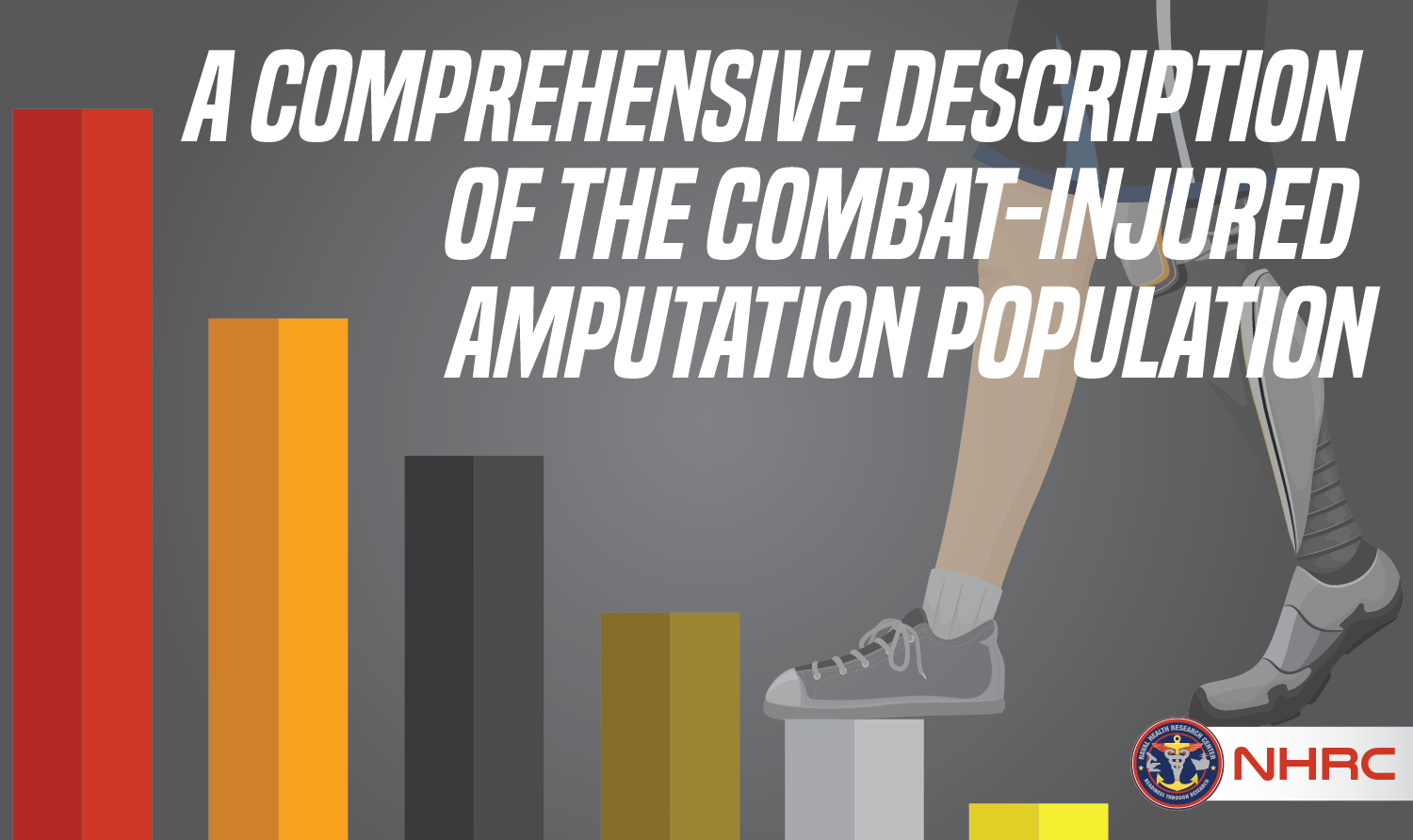
During the Military Health System Research Symposium (MHSRS) Aug. 29, researchers from the Naval Health Research Center (NHRC) shared findings from a recent report that described quality of life outcomes for combat-injured amputees.





















.png)









No hay comentarios:
Publicar un comentario